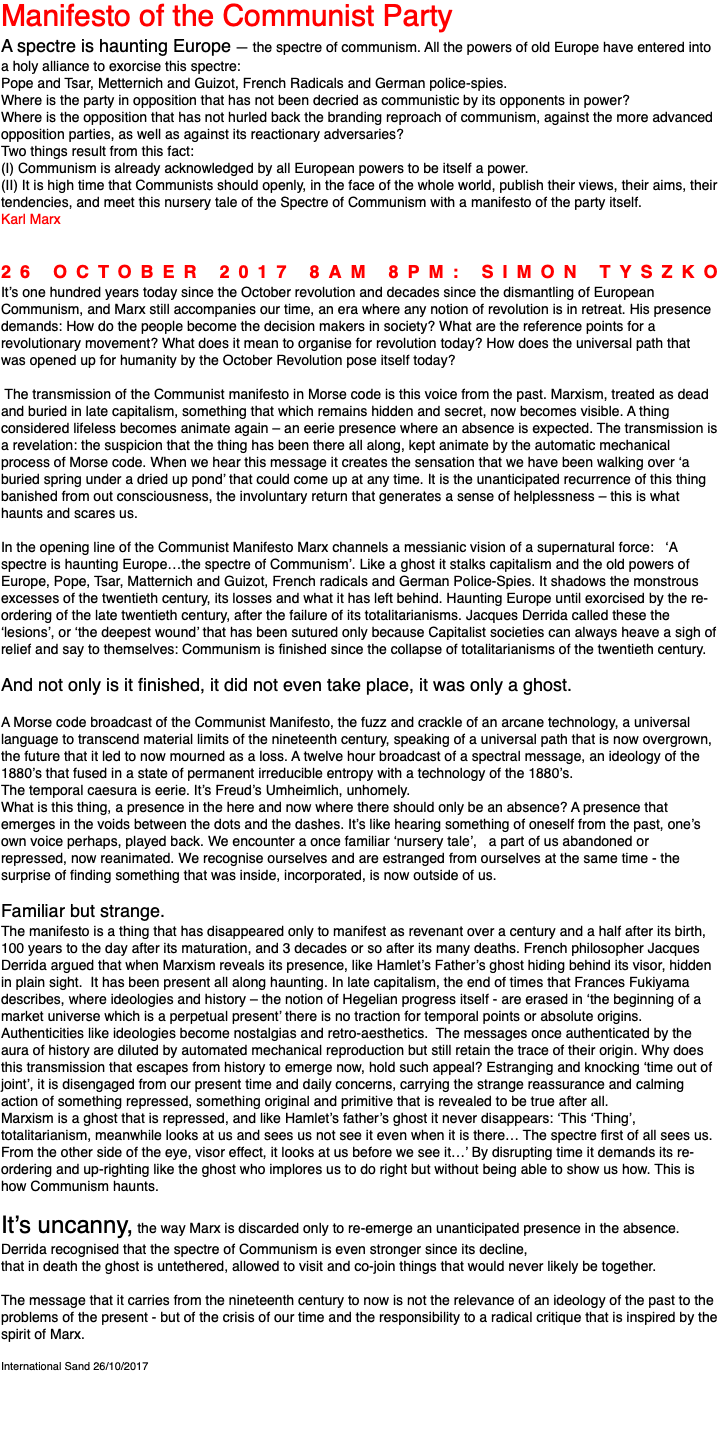Spectre
The Communist Manifesto presented in Morse Code.
Attenuated, improvised, mixed live,
& broadcast over twelve hours on Resonance Extra
to mark the centenary of the
Soviet Revolution.
Presented here in two hour segments for easy, yet revolutionary listening.
Feburary
Aurora
Bolsheviks
Soviets
Struggle
Winter Palace
